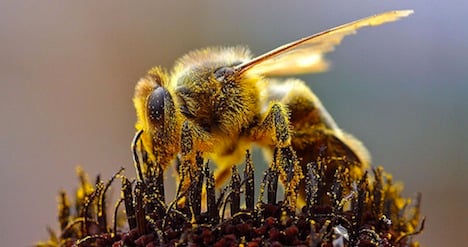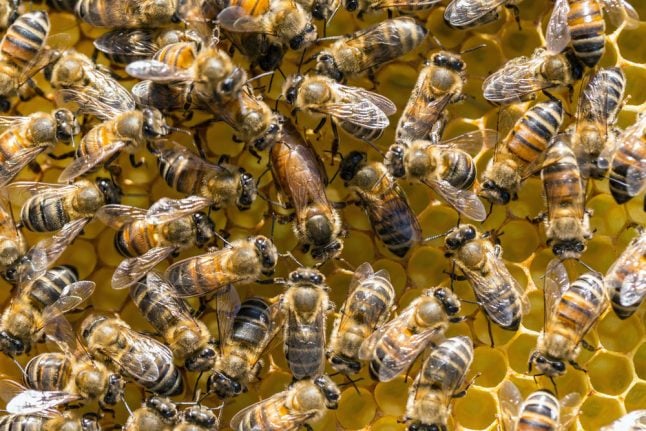The banner, reading "Syngenta Pesticides Kill Bees!", was unfurled by Greenpeace environmental campaigners who scaled the company's office building in Basel.
Greenpeace has demanded that Switzerland follow the lead of neighbours France, Germany and Italy in banning the contested pesticides, which are also forbidden in Slovenia.
As in many countries, Switzerland has seen its population of the crucial insect slump, and the authorities have named a "bee tsar" to try to find ways to save the species.
Greenpeace and other anti-pesticide campaigners charge that Syngenta's Actara and Cruiser brands contain chemicals which hamper bees' direction-finding and flight, thereby reducing their ability to obtain food and rendering them vulnerable to disease.
Bees play a key role in the environment by pollinating plants, which are at the top of the food chain.
Syngenta has rejected claims that its pesticides are at fault, however.
In February, it faulted a plan by the European Union to slap a two-year ban on so-called neonicotinoid pesticides, saying studies were based on flawed science and that blaming its products for bee deaths was wrong.
The chemicals in doubt — clothianidin, imidacloprid and thiamethoxam — are present in pesticides produced by Syngenta and German counterpart Bayer.
Syngenta is the top player on the global agrichemical market.
BEES
Greenpeace targets Syngenta on bee deaths
Greenpeace activists claiming pesticides decimate bee populations demonstrated on Wednesday at the headquarters of Swiss agrichemical giant Syngenta, hanging a huge banner outside.
Published: 17 April 2013 11:37 CEST

Photo: Jon Sullivan
Url copied to clipboard!


 Please whitelist us to continue reading.
Please whitelist us to continue reading.
Member comments